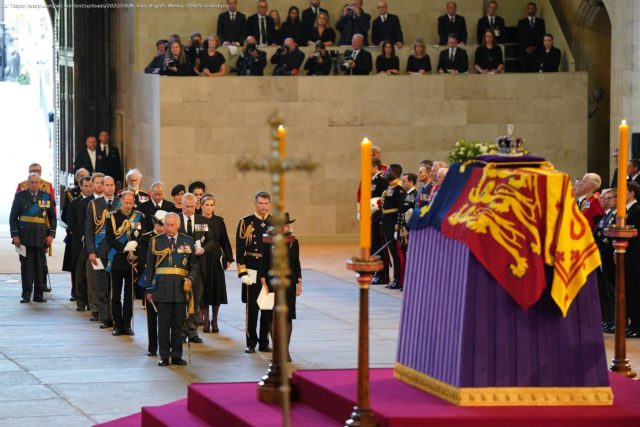NEW YORK (AP) — When word came that Queen Elizabeth II was close to her death, media organizations around the world sprang to life, dispatching reporters to a…
— When word came that Queen Elizabeth II was close to her death, media organizations around the world sprang to life, dispatching reporters to a royal castle in Scotland and breaking out coverage plans decades in the making.
At age 96, the queen’s passing was hardly a surprise. Still, the British royal succession is a media event on steroids that will culminate in Monday’s live coverage of funeral services from Westminster Abbey.
“It’s something I’ve always sort of dreaded and anticipated and worried about,” said Deb Thompson, assistant London bureau chief for CBS News in the United States, recalling nights spent obsessing over the details.
So far, it’s all gone smoothly and she pronounces herself awed by the spectacle.
Woe to those who didn’t plan ahead, however.
The director of U.K.’s Foreign Press Association said the organization has been inundated with requests for accreditation from television and radio broadcasters all over the world. The association tries to help them navigate government and royal protocols.
“You’d have thought the royal weddings reached the maximum level of interest, but no,” said director Deborah Bonetti. “It’s a tsunami of people who have no idea what to do in order to broadcast these proceedings from London.”
Even accredited journalists are fighting for positions, “so if you’re just flying in … you’re unlikely to get one,” she said.
Within Britain, the well-rehearsed coverage of remembrances and ceremonial events has been deferential to a fault, said Steven Barnett, communications professor at the University of Westminster. Critical reflection on the queen’s life or the monarchy’s role in modern society — of which there has been coverage around the world — has almost entirely been banished to social media, he said.
In a circling of the wagons, The New York Times was criticized in Britain for an article that talked about the “hefty” price tag of a royal funeral being paid for by state funds at a time many Britons are hurting financially.
“There are no depths to which the @nytimes won’t stoop to in its anti-British propaganda,” journalist Andrew Neil, a former editor at the Sunday Times in London said on Twitter.
In the United States, the coverage has mostly focused on the passing of an era, and the solemn services, said Marlene Koenig, who manages the Royal Musings blog from her Virginia home.






